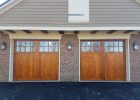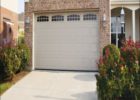How to Scale Your Overhead Residential Garage Door for Optimal Performance
![[Tags] overhead-residential-garage-doors-1024x768 How to Scale Your Overhead Residential Garage Door for Optimal Performance](https://swopesgarage.com/wp-content/uploads/2024/07/overhead-residential-garage-doors-1024x768.jpg)
Importance of Overhead Residential Garage Doors
Overhead residential garage doors are more than just a portal to store vehicles. They play a pivotal role in enhancing curb appeal, securing the home, and improving energy efficiency. A well-chosen garage door can elevate a home’s aesthetic, provide substantial insulation benefits, and significantly bolster security.
Overview of Scaling Considerations
When scaling garage doors, homeowners must balance aesthetic preferences, material durability, insulation needs, and security features. Each of these elements contributes to the overall functionality and appearance of the garage door, impacting the home’s value and daily convenience.
2. Types of Overhead Garage Doors
Sectional Garage Doors
Sectional garage doors are composed of panel sections connected with hinges. As the door opens and closes, wheels at the edge of each panel roll inside a vertical track on each side of the door opening. This type of door is popular due to its durability and ease of operation.
Roll-Up Garage Doors
Roll-up garage doors are a common choice for those seeking a compact and highly durable solution. These doors are typically used in commercial settings but are gaining popularity in residential applications for their space-saving properties and robust construction.
3. Material Choices and Their Impact
Steel Doors
Steel doors are renowned for their strength and low maintenance requirements. They are available in a variety of styles, including those that mimic wood, providing a balance between durability and aesthetics. Steel doors often come insulated, enhancing their energy efficiency.
Wooden Doors
Wooden garage doors offer unparalleled beauty and customization options. They can be crafted to complement a wide range of architectural styles. However, they require regular maintenance to protect against weathering and potential rot.
Aluminum Doors
Aluminum garage doors are lightweight and resistant to rust, making them an excellent choice for humid or coastal environments. They can be customized with glass panels, offering a modern and sleek appearance. Despite their benefits, aluminum doors can be more prone to dents compared to steel doors.
4. Insulation and Energy Efficiency
Benefits of Insulated Garage Doors
Insulated garage doors provide significant advantages, including improved energy efficiency, noise reduction, and enhanced durability. They help maintain a stable temperature inside the garage, which can be crucial if the space is used for activities other than vehicle storage.
Comparing Insulation Types
Garage doors can be insulated with polystyrene or polyurethane. Polystyrene insulation is less expensive and provides decent insulation, while polyurethane offers superior thermal resistance and noise-dampening properties, making it the preferred choice for those seeking maximum efficiency.
5. Design and Aesthetics
Customizable Features
Modern garage doors can be customized to suit a homeowner’s specific preferences. From window placements to decorative hardware, the possibilities are extensive. Customizable features allow homeowners to tailor their garage doors to match their home’s architectural style and personal taste.
Color and Finish Options
The color and finish of a garage door can significantly impact the overall look of a home. Many manufacturers offer a wide range of color options, as well as wood grain finishes that provide the appearance of natural wood without the associated maintenance.
6. Safety and Security Features
Modern Security Enhancements
Modern garage doors come equipped with advanced security features such as rolling code technology, which changes the door’s access code each time the remote is used. This prevents unauthorized access and enhances overall security.
Safety Mechanisms
Safety is a paramount concern with overhead garage doors. Features like auto-reverse mechanisms, which stop and reverse the door if it encounters an obstruction, and pinch-resistant designs, which prevent fingers from being caught between panels, are crucial for preventing injuries.
7. Cost Considerations
Initial Investment vs. Long-Term Value
While the initial cost of a high-quality garage door can be significant, the long-term benefits often outweigh the investment. A durable, well-insulated door can lower energy bills, reduce maintenance costs, and increase the home’s resale value.
Maintenance and Repair Costs
Regular maintenance is essential for the longevity of a garage door. Steel and aluminum doors generally require less upkeep than wooden doors. Homeowners should budget for periodic inspections and potential repairs to ensure the door operates smoothly and safely.
8. Installation and Professional Assistance
Importance of Professional Installation
Professional installation ensures that the garage door operates correctly and safely. Improper installation can lead to operational issues, increased wear and tear, and potential safety hazards. Professional installers have the expertise to handle any complications that may arise.
Finding the Right Installer
Selecting a reputable installer is crucial. Homeowners should look for installers with positive reviews, proper licensing, and experience with the specific type of garage door being installed. A good installer will provide a warranty and be available for follow-up maintenance and repairs.
Choosing the right overhead residential garage door involves careful consideration of various factors, from material and insulation to design and security features. By understanding the options and their implications, homeowners can make informed decisions that enhance their home’s functionality, aesthetic appeal, and value.





